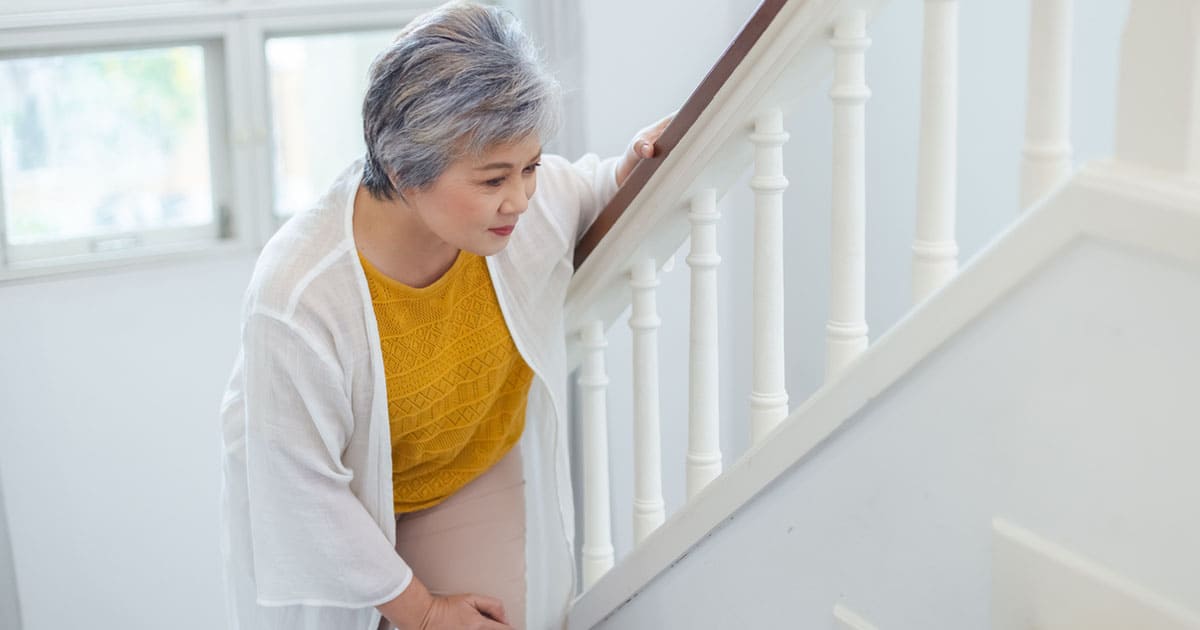Difficulty in climbing stairs, preparing healthy meals or increased loneliness can all be signs your loved one is struggling to live at home alone. If your family is like many, however, understanding the options can be challenging.
Most of us have little experience in making this decision – or even what to look for. We’ve created a checklist that can help.
An evaluation checklist for living at home
Take a moment to review the following 10 checklist items. Your answers should provide a better understanding of your loved one’s quality of life, if the home needs renovations or whether additional care is required.
1. Mobility and accessibility: Can your loved one still navigate the home safely? Check for needed accessibility renovations.
2. Health care needs: Does your loved one require regular medical care? Consider whether assistance is becoming a daily need.
3. Personal care: Can your loved one maintain personal care independently, including bathing, grooming and dental care? Is help needed with daily tasks?
4. Nutrition and meal preparation: Is your loved one able to shop for and prepare healthy meals on their own? Are they beginning to substitute snacks or do they skip meals?
5. Social interaction: Does your loved one have opportunities for social engagement? Isolation can impact both physical and mental health.
6. Home maintenance: Maintaining a home is a daily responsibility. Can your loved one clean, do laundry and other household tasks?
7. Safety concerns: Is your loved one’s home safe to maneuver? Check for hazards such as poor lighting, loose carpets or cluttered walkways that could increase the risk of falling.
8. Cognitive health: Monitor signs of cognitive decline, such as forgetfulness or difficulty in handling finances, which might indicate a need for a safer, more supportive environment.
9. Emergency response: How quickly can your loved one get help? Assess the ability to activate emergency systems or personal monitoring devices.
10. Transportation: Is your loved one still able to drive safely? Are there transportation options for shopping, medical appointments or other activities?
The benefits of a senior living community
If your loved one is struggling to live a safe and quality life at home, a senior living community can provide support to meet personal needs and preferences. The following are a few of the advantages you’ll discover:
• Enhanced safety and accessibility: Homes are designed to be accessible, reducing the risk of falls and injuries.
• Support with personal care: Staff assistance with daily activities supports residents to maintain an independent lifestyle.
• Healthy dining: Nutritious meals are tailored to meet dietary needs. Dining with others also provides an excellent social opportunity.
• Maintenance-free living: Housekeeping and maintenance services allow residents to live comfortably without worrying about home upkeep.
• Built-in social opportunities: A variety of planned activities and common spaces offer rich opportunities for social interaction.
• Cognitive support programs: Many communities offer programs designed to enhance cognitive function and provide support for those with memory impairments.
• Emergency systems: Emergency response systems are typically built into the individual’s home, providing peace of mind for families and residents.
• Transportation services: Communities often offer scheduled transportation services, making it easier for residents to attend off-site entertainment or shopping.
Next steps for making the best decision
Deciding whether it’s time for a loved one to move into senior living isn’t easy, but with the right information and support, you can make a well-informed decision that ensures safety and enhances quality of life. These suggestions can guide the next steps:
1. Professional assessment: Consider a professional in-home assessment by a senior care expert to evaluate the living situation and recommend appropriate care options objectively.
2. Family discussion: Arrange a family meeting to discuss your observations and feelings. Encourage your loved one to discuss personal preferences and concerns.
3. Financial planning: Review financial resources and options, such as long-term care insurance, private funds or Veteran’s benefits.
4. Consider all options: Research and discuss options available, such as bringing services into the home, asking family or friends to help out or consider the support of a senior living community.
5. Visit senior living communities: Tour various communities to see firsthand the amenities and care levels offered and speak with staff and residents about their experiences.
How The Charleston Senior Community can help
The Charleston Senior Community can provide support, guidance and compassionate care every step of the way. Together, we can empower your loved one to live their best life, no matter what challenges they may face.
The Charleston Senior Living Community
Locally owned and operated, we offer personalized care by our dedicated team members. Setting a new standard in Assisted Living and Memory Care, we don’t define our residents by their limitations or illness but instead believe in focusing on the positive and the possibility.
The Charleston Senior Community includes private apartments for assisted living residents and for those living with Alzheimer’s or dementia. Your loved ones will benefit from our attention to detail, routine health assessments, delicious dining and daily activity programs as we support everyone to live their best life.
Consider a few of our amenities:
• Chef-led dining program
• Community movie theater
• Salon
• Ballroom
• Live entertainment
• Outdoor patio
• Social lounges
• Housekeeping
If you or your family are thinking about Assisted living or Memory care, we hope you will consider The Charleston Senior Community. We are a trusted resource and are here to answer any questions, contact us today.
We also invite you to download our complimentary Early Signs of Dementia guide to learn more about what to look for in older adults that might mean it’s time to consider senior living.








